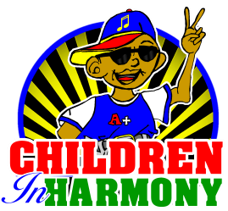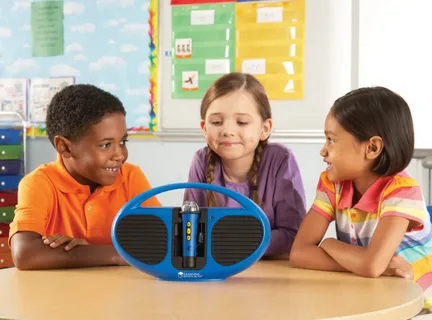Music has long been recognized as a universal language, capable of transcending barriers
and connecting people across different cultures and backgrounds. However, its role in
education, particularly in a child’s development, goes far beyond entertainment. Music plays
a vital role in enhancing cognitive, emotional, and social growth, making it an essential part
of a well-rounded education. In this article, we’ll explore how music positively influences
various aspects of a child’s education and development.
1. Enhancing Cognitive Development
One of the most significant benefits of music in a child’s education is its impact on cognitive
development. Studies have shown that learning to play a musical instrument or engage in
musical activities stimulates multiple areas of the brain, enhancing memory, attention, and
problem-solving skills. Music helps children develop stronger neural connections, improving
their ability to process information and think critically.
For example, learning to read music requires children to recognize patterns, understand
timing, and process mathematical relationships, which can improve their performance in
subjects like math and science.
2. Boosting Language and Literacy Skills
Music and language share a deep connection. Both involve rhythm, pitch, and patterns,
making musical education a powerful tool for enhancing language development in children.
Learning to play or sing can help children improve their vocabulary, pronunciation, and
reading comprehension.
Songs with repetitive lyrics, rhymes, and melodies can help young learners grasp new words
and concepts faster. Studies have also shown that children who participate in musical
activities often have better phonological awareness, which is crucial for developing reading
and writing skills.
3. Improving Memory and Concentration
Music has the ability to improve a child’s memory and concentration. Learning a musical
instrument requires children to memorize notes, sequences, and techniques, strengthening
their ability to retain information. This training of memory muscles extends beyond music,
benefiting academic areas like mathematics, history, and language arts.
Additionally, music encourages children to focus their attention for extended periods, which
is critical for success in classroom environments.
4. Encouraging Emotional Expression and Self-Confidence
Music is a powerful form of emotional expression. It gives children a safe outlet to express
their feelings, which can be especially beneficial for those who struggle with verbal
communication. Singing or playing an instrument allows children to explore their emotions,
whether it’s joy, sadness, or excitement.
Engaging in music also boosts self-confidence. When children successfully learn a new
piece of music or perform in front of others, they experience a sense of accomplishment and
pride. This self-confidence translates into other areas of their life, encouraging them to take
on new challenges and participate actively in school.
5. Promoting Social Skills and Teamwork
Music often involves group activities, whether it’s singing in a choir, playing in a band, or
participating in a musical ensemble. These collaborative experiences teach children
essential social skills like cooperation, communication, and respect for others’ contributions.
Playing in a group setting also teaches children about teamwork. Each member of the group
must listen to one another and work together to create harmonious performances. This
collaboration helps children understand the importance of working with others, a skill that is
invaluable both in and out of the classroom.
6. Strengthening Fine Motor Skills
Learning to play a musical instrument, especially instruments like the piano, violin, or guitar,
requires the development of fine motor skills. The coordination needed to play an instrument
helps children refine their motor control and hand-eye coordination, skills that are useful for
tasks such as writing, typing, and using educational tools.
7. Enhancing Creativity and Imagination
Music stimulates the creative side of the brain, encouraging children to think outside the box.
Whether they are composing a new melody or interpreting a song in their own way, children
learn to express their individuality and creativity through music.
Creativity developed through music often spills over into other academic areas. Children who
are exposed to music from a young age tend to approach problem-solving in unique and
innovative ways, improving their performance in subjects like science, art, and literature.
8. Supporting Emotional and Mental Well-Being
Music can have a calming effect on children, helping to reduce stress and anxiety. Studies
have shown that listening to or playing music can improve mood, lower cortisol levels (a
stress hormone), and promote relaxation. This emotional balance is crucial for maintaining a
healthy and productive learning environment.
Music also helps children develop emotional intelligence by teaching them to recognize and
understand different emotions through melodies and lyrics. As they grow, this emotional
awareness can contribute to healthier relationships and better emotional regulation.
9. Instilling Discipline and Perseverance
Mastering a musical instrument or learning a complex piece of music requires discipline,
practice, and perseverance. Children who engage in music education develop a strong work
ethic and learn the importance of patience. They understand that achieving mastery takes
time and consistent effort, a valuable lesson that applies to all areas of education.
These experiences with discipline and hard work can positively influence academic
achievement, as children are more likely to apply the same dedication to subjects like math,
reading, and science.
10. Creating Cultural Awareness and Appreciation
Music is a reflection of cultural diversity, offering children the opportunity to explore different
traditions and histories. By learning about various musical genres and styles from around the
world, children develop an appreciation for different cultures and histories. This exposure
fosters a sense of global awareness and helps them become more open-minded and
respectful of diversity.
Conclusion: The Lifelong Benefits of Music in Education
The role of music in a child’s education cannot be overstated. From cognitive development
and emotional expression to social skills and self-confidence, music provides children with a
multitude of tools that support their overall growth. By incorporating music into education, we
not only enrich academic performance but also nurture well-rounded, emotionally intelligent,
and creative individuals. Music’s ability to connect with children on multiple levels makes it
an invaluable part of any educational program, helping children succeed in both school and
life.
FAQ's
How does music help children with learning difficulties?
Music helps children with learning difficulties by stimulating brain areas related to memory,
attention, and language. It provides an alternative way to process information, making
learning more accessible for students with challenges.
Can learning music improve math skills?
Yes, music involves patterns, rhythm, and counting, which helps children develop a better
understanding of mathematical concepts like fractions, ratios, and spatial awareness.
At what age should children start learning music?
Children can begin learning music as early as preschool. Early exposure helps develop fine
motor skills, cognitive abilities, and emotional expression from a young age.
How does music impact a child’s emotional well-being?
Music allows children to express their emotions and manage stress. It promotes relaxation,
helps in emotional regulation, and boosts mood, contributing to better emotional and mental
health.
Should all children be encouraged to learn a musical instrument?
While not all children need to learn an instrument, exposure to music in any form—whether
listening, singing, or playing—benefits their cognitive and emotional development.




